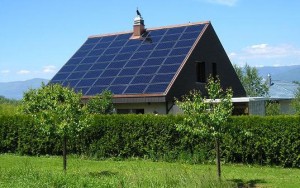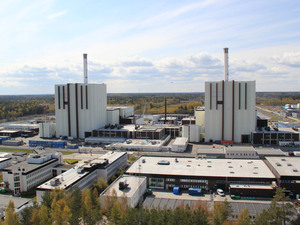The Climate Fix: Video Interview with Author Roger Pielke Jr

This past spring semester, American University hosted an event featuring Roger Pielke Jr., a Professor of Environmental Studies at the University of Colorado-Boulder and author of The Climate Fix: What Scientists and Politicians Won’t Tell You About Global Warming.
The event — for which I served as moderator — was co-sponsored by the School of Communication, the Global Environmental Politics program in the School of International Service and the Center for Environmental Policy in the School of Public Affairs.
Below is a report on the event by Khari Williams, a graduate of AU’s program in public affairs journalism and a student in this past spring semester’s “Science, Environment and the Media” course. The interview was video recorded by Jacques Ledbetter of our School of Communication staff and excerpts were recently made available on YouTube.
I have embedded those YouTube interview excerpts adjacent to the relevant portions of Williams’ report — Matthew Nisbet.
Climate Change Requires Innovative Thinking and Approaches Argues Scholar
By Khari Williams
WASHINGTON – A leading scholar on climate science and policy calls the notion of a single solution for climate change “fanciful thinking” and says the focus should instead be on individually addressing the many issues that fall under the umbrella of climate change.
Roger Pielke Jr., a professor of environmental studies at the University of Colorado, made his remarks Feb. 25 during an appearance at American University for the school’s Science in Society series. Author of The Honest Broker, Pielke discussed his latest book, The Climate Fix: What Scientists and Politicians Won’t Tell You About Global Warming, published in September 2010.
Pielke said climate change means many things to many people and therefore can’t be solved in a straightforward fashion. He echoed the sentiment of British climate scientist Mike Hulme, author of Why We Disagree About Climate Change, that we can make a difference but are never going to truly solve the problem of climate change.
“The idea that we’re going to solve it, we’re going to come up with a particular solution, is probably fanciful thinking,” Pielke said. “Climate change has a lot more in common with issues like world peace and poverty and health care. These are things that we do better or worse on, but we never say, ‘All right, that job’s done.’”
One of the obstacles to dealing with climate change, Pielke said, is that the issue has been “loaded up like a Christmas tree” to include a vast array of concerns, such as biodiversity, forests, conventional pollution, disaster adaptation and equity between rich and poor countries.
“You name it, it’s all been kind of piled on the back of climate change,” Pielke said.
If we’re trying to increase human life span, Pielke analogized, instead of trying to come up with a single pill, the better approach would be to tackle the issue disease by disease and public health issue by public health issue.
“My sense is that the [climate change] issue has collapsed under the weight of all those other issues and we need to start picking it apart and dealing with different parts of the issue,” he said.
One issue that always gets attention in the climate change debate is carbon dioxide emissions. Pielke said that if we are to reduce the amount of carbon dioxide accumulating in our atmosphere we would have to “accelerate the decarbonization” of our economic activity, which means reducing the amount of carbon dioxide emitted per unit of gross domestic product.
The policy implication, Pielke explained, is that about 90 percent or more of our energy would have to come from carbon-neutral sources, whereas the worldwide figure now stands at about 10 percent. Increasing that number requires vast technological innovation, Pielke said.
“Rather than having these damaging debates over science, over whose political party is better or worse on this issue, if we just start getting to the task of diversifying, making less expensive, making more secure our energy system, we will start on this path from 10 percent to 90 percent,” he said.
The son of a famous atmospheric scientist, Pielke became acquainted with the partisan debate over climate change during his days as a student at the University of Colorado. While a research assistant at the National Center for Atmospheric Research in the late 1980s, Pielke got to work alongside some of the world’s top scientists in NCAR’s Atmospheric Chemistry Division.
“I got to hear them say things like, ‘If only those policymakers better understood our science, decisionmaking would be straightforward. It would be easier,’” Pielke said. “That’s what set me on my path to actually winding up in Washington.”
After earning his bachelor’s degree in mathematics in 1990, Pielke came to D.C. in 1991 to work with the House of Representatives science committee in a “glorified intern type of position” while pursuing his master’s degree in public policy at Colorado.
“And when I got to Washington and I saw the other half of that equation, with the staff saying, ‘If only those scientists understood what we do,’ I realized that was for me very much an ‘aha’ moment, that there’s two really important communities of really, really smart people, and they kind of talk past each other to some degree,” Pielke said.
So, having grown up convinced that he would be a scientist of some sort, Pielke instead focused his career on the intersection of science and politics and earned a Ph.D. in political science from Colorado in 1994. Pielke said the hyperpartisanship surrounding the climate change debate is holding the United States back at a time when countries such as Germany and India are focused on energy innovation and clean energy research.
“Right now, the United States is so narrowly and inwardly focused on the politics of the day and the very partisan climate debate that we may just be squabbling with each other while the rest of the world passes us by,” he said.
Matthew Nisbet, a professor in AU’s School of Communication who moderated the discussion, mentioned that innovation and economic competitiveness have become the master frames through which climate change has been communicated in public policy discussions. Pielke said the focus ought to be on innovation and competitiveness but what that implies in terms of policy options has not been fleshed out.
Nisbet also asked Pielke about the role of conservatives in opposing cap-and-trade and other climate change measures. Pielke agreed that conservatives have had a large role in picking apart and raising uncertainty about scientific findings, but he said, “They’ve been able to do that because of how the issue has been framed by the environmental community in the first place.”
Instead of the straightforward tack preferred by environmentalists, Pielke advocates an oblique approach to climate change communication in the conclusion of The Climate Fix. In terms of communicating to the public, Pielke said policies should be designed to reinforce issues like creating jobs and securing energy security that people deem more important and pressing.
“Rather than trying to shape people’s opinion around what experts think they should value, why not take a look at what they actually do value and then shape your policy proposals around that?” Pielke said.
–Report by Khari Williams, an MA student in Public Affairs Journalism at American University.This post is part of the course “Science, Environment, and the Media” taught byProfessor Matthew Nisbetin theSchool of Communication at American. See alsoother postson the climate change debate by Mr. Williams and members of his project team. Video is by Jacques Ledbetter.





